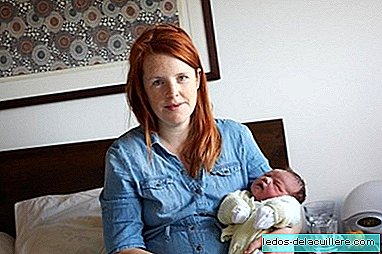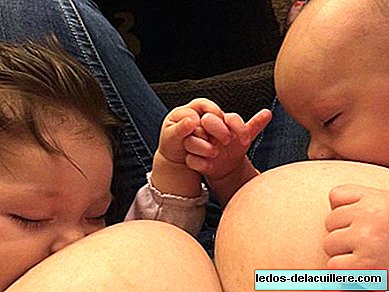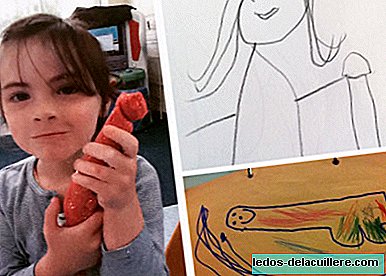
Much has been studied about disruptive behaviors during childhood, their characteristics and causes. However, until recently it was unknown which of the many breeding techniques there are, was the most effective to reduce them to the maximum.
It has always been thought that treating this type of behavior with exclusive behavior management techniques it was the most appropriate, but a recent study has determined the importance of combining it with techniques that foster the relationship between parents and children.
What is meant by disruptive behavior?
Before analyzing the conclusions of this study we must know what is meant by "disruptive behavior", since it is the type of behavior on which the research has focused.
The researchers define it as a non-cooperative and hostile behavior, which includes frequent tantrums, excessive discussions with adults and deliberate attempts to disturb others threatening the harmony of living together.
Disruptive behavior it may be normal at some point in childhood, but in some cases, due to its frequency and persistence over time, it becomes a serious problem that affects both the family environment and the school.
What did the study consist of?
The study has been carried out jointly by the University of Amsterdam, the University of Cardiff in Wales, the University of Oxford and the University of Utrecht, and has been published in the "Child Development" magazine of the Society for Research and Child Development
The research involved more than 15,000 families from 20 countries and from different socio-economic backgrounds, and focused on study the effectiveness of the most used parenting programs when it comes to reducing disruptive behavior in children aged two to 10 years.
The study involved both families with children without significant behavioral problems or with some risk of developing them, as families with children with diagnosed behavior disorders or with high levels of disruptive behaviors.

The study sought to determine which of the two most used parenting strategies was most effective To treat disruptive behaviors during childhood:
On the one hand, the parenting model based on behavior management strategies, which are those focused on reinforcing with praise the positive behavior of the child and make him understand the consequences of his actions avoiding negative reinforcement (punishments, loss of privileges, techniques such as "time out" ...)
On the other hand, the parenting model was studied based on foster relationships with children, connecting emotionally with them and being sensitive to their needs.
How to effectively treat disruptive behaviors in childhood?
The researchers saw that in those cases in which the child exhibits disruptive behaviors, the most effective way to treat them is by combining behavior management techniques with parent-child relationship building techniques. Something that can only be achieved if School and parents work hand in hand.

In this way, it is essential to provide parents with tools to improve the relationship with your children, teaching them to treat them with greater sensitivity and empathy, encouraging active listening, praising their positive behaviors and creating bonds of trust and security.
In short, practicing positive parenting at home, while at school it is complemented by non-violent disciplinary techniques aimed at correcting that disturbing behavior.
"We found that when children have disruptive behavior, it is more effective for parents to control the situation combining behavior management strategies with relationship building strategies, instead of resorting only to strategies to handle that bad behavior "- explains Patty Leijten, professor at the University of Amsterdam and director of this study.
However, it is important to keep in mind that Improving relationships and trust between parents and children is a slow and gradual process It takes time to see the positive effects. While, on the contrary, with the use of behavior management techniques we would achieve short-term effects.
"Promoting and improving communication between parents and children is one of the essential pillars to strengthen the relationship, and by itself it is a very useful technique when there are no disruptive behaviors"
"However, at the time they arise it is essential to combine it with techniques aimed at improving these bad behaviors"
In summary, according to the new findings it is important that families with children with serious behavioral problems combine both techniques to solve it, and nor focus only on the correction of one's behavior.
And over time, if the bond created with the children is solid, positive and based on trust, the appearance of new behavioral problems is probably avoided.Via Child Development
In Babies and More Punishments, Praise the successes instead of always highlighting the mistakes of your children












